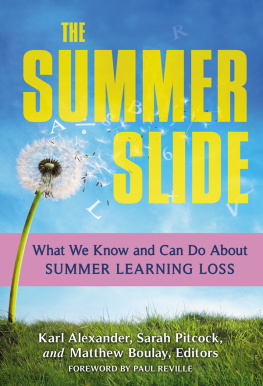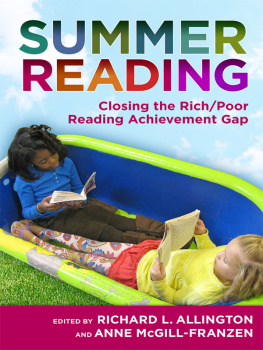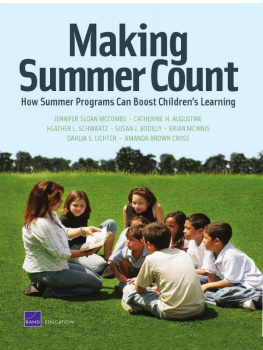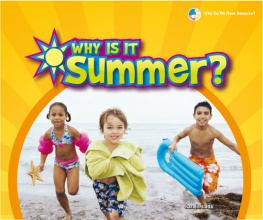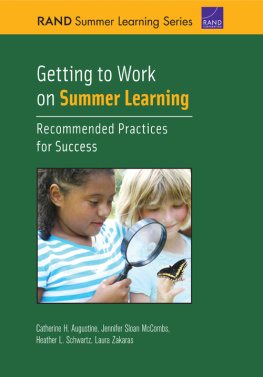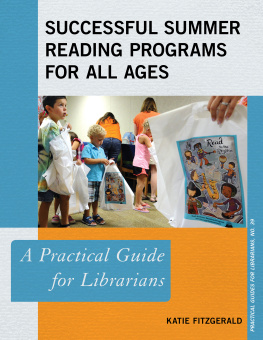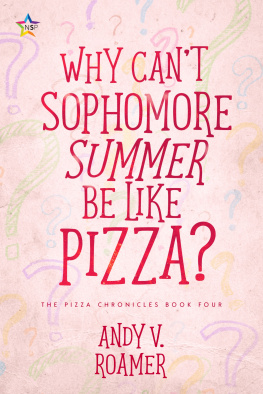Karl Alexander - The Summer Slide: What We Know and Can Do about Summer Learning Loss
Here you can read online Karl Alexander - The Summer Slide: What We Know and Can Do about Summer Learning Loss full text of the book (entire story) in english for free. Download pdf and epub, get meaning, cover and reviews about this ebook. year: 2016, publisher: Teachers College Press, genre: Children. Description of the work, (preface) as well as reviews are available. Best literature library LitArk.com created for fans of good reading and offers a wide selection of genres:
Romance novel
Science fiction
Adventure
Detective
Science
History
Home and family
Prose
Art
Politics
Computer
Non-fiction
Religion
Business
Children
Humor
Choose a favorite category and find really read worthwhile books. Enjoy immersion in the world of imagination, feel the emotions of the characters or learn something new for yourself, make an fascinating discovery.
- Book:The Summer Slide: What We Know and Can Do about Summer Learning Loss
- Author:
- Publisher:Teachers College Press
- Genre:
- Year:2016
- Rating:4 / 5
- Favourites:Add to favourites
- Your mark:
The Summer Slide: What We Know and Can Do about Summer Learning Loss: summary, description and annotation
We offer to read an annotation, description, summary or preface (depends on what the author of the book "The Summer Slide: What We Know and Can Do about Summer Learning Loss" wrote himself). If you haven't found the necessary information about the book — write in the comments, we will try to find it.
This book is an authoritative examination of summer learning loss, featuring original contributions by scholars and practitioners at the forefront of the movement to understandand stemthe summer slide. The contributors provide an up-to-date account of what research has to say about summer learning loss, the conditions in low-income childrens homes and communities that impede learning over the summer months, and best practices in summer programming with lessons on how to strengthen program evaluations. The authors also show how information on program costs can be combined with student outcome data to inform future planning and establish program cost-effectiveness. This book will help policymakers, school administrators, and teachers in their efforts to close academic achievement gaps and improve outcomes for all students.
Book Features:
- Empirical research on summer learning loss and efforts to counteract it.
- Original contributions by leading authorities.
- Practical guidance on best practices for implementing and evaluating strong summer programs.
- Recommendations for using program evaluations more effectively to inform policy.
Contributors: Emily Ackman, Allison Atteberry, Catherine Augustine, Janice Aurini, Amy Bohnert, Geoffrey D. Borman, Claudia Buchmann, Judy B. Cheatham, Barbara Condliffe, Dennis J. Condron, Scott Davies, Douglas Downey, Ean Fonseca, Linda Goetze, Kathryn Grant, Amy Heard, Michelle K. Hosp, James S. Kim, Heather Marshall, Jennifer McCombs, Andrew McEachin, Dorothy McLeod, Joseph J. Merry, Emily Milne, Aaron M. Pallas, Sarah Pitcock, Alex Schmidt, Marc L. Stein, Paul von Hippel, Thomas G. White, Doris Terry Williams, Nicole Zarrett
A comprehensive look at whats known about summers impact on learning and achievement. It is a wake-up call to policymakers and educators alike
Jane Stoddard Williams, Chair, Horizons National
Provides the reader with everything they didnt know about summer learning loss and also provides information on everything we do know about eliminating summer learning loss. Do your school a favor and read this book and then act upon what you have learned.
Richard Allington, University of Tennessee
Karl Alexander: author's other books
Who wrote The Summer Slide: What We Know and Can Do about Summer Learning Loss? Find out the surname, the name of the author of the book and a list of all author's works by series.

